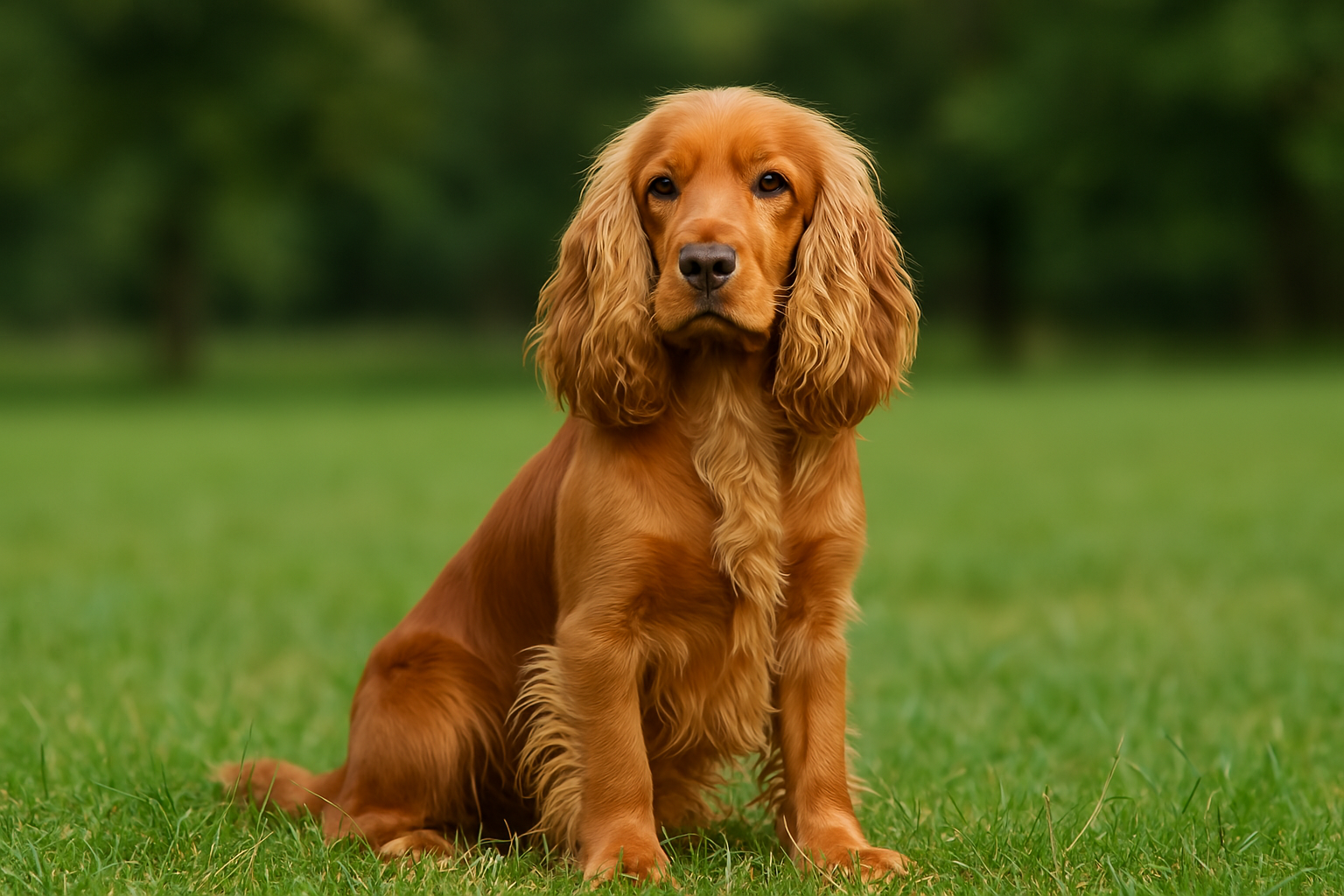If you’re searching for a lovable, cheerful, and energetic dog breed, the Cocker Spaniel might just be the perfect fit! 🐶 Known for their beautiful, flowing coats and expressive eyes, these dogs are full of personality and charm. Whether you’re a first-time pet parent or a seasoned dog lover, learning more about the Cocker Spaniel can help you make an informed choice. This guide covers everything you need to know about the breed—from its origin to care tips, behavior, and suitability for Indian households.
📜 History and Origin of the Cocker Spaniel
The Cocker Spaniel originated in Spain and was bred primarily as a hunting dog. The breed later gained popularity in the United Kingdom and the United States. The two most well-known types are the American Cocker Spaniel and the English Cocker Spaniel. While both share similar traits, they also have slight differences in build and coat.
Originally used for hunting game birds, particularly the woodcock (from which they get their name), Cocker Spaniels have evolved into loving family pets around the world. 🏡
🐕 Physical Appearance
- Size: Small to medium-sized
- Weight: 12–16 kg (on average)
- Height: Around 14–17 inches
- Coat: Silky, medium to long fur
- Colors: Black, golden, liver, roan, and tri-color combinations
One of the most eye-catching features of the Cocker Spaniel is its luxurious coat and big, soulful eyes 😍. Regular grooming is essential to maintain their charming look.
🧠 Temperament and Personality
Cocker Spaniels are known for their cheerful, friendly, and intelligent nature. They are:
- Extremely loyal to their families
- Great with children and other pets
- Playful and always eager to please
- Emotionally sensitive and thrive on companionship
They’re often described as “merry” dogs due to their constantly wagging tails and joyful behavior. 🐾
🏋️♀️ Exercise and Activity Needs
Despite their small size, Cocker Spaniels are energetic and love playtime. They enjoy walks, fetch, and interactive toys. Without regular exercise, they can become bored and develop behavioral issues.
Tip: Daily walks and mental stimulation are a must for this breed. 🦴
🍽️ Diet and Nutrition
Cocker Spaniels require a balanced diet rich in proteins, fats, and essential vitamins. Since they are prone to obesity, portion control is crucial.
- High-quality dog food (wet or dry)
- Fresh fruits and vegetables (as treats)
- Limit on human food and table scraps
Consult a vet for specific dietary needs based on your pet’s age and activity level. 🥕🍗
💡 Health Issues to Watch Out For
Like all breeds, Cocker Spaniels have some hereditary health concerns. Regular vet check-ups and preventive care can go a long way in keeping your pup healthy.
Common health concerns include:
- Ear infections (due to floppy ears)
- Eye conditions like cataracts or glaucoma
- Skin allergies
- Hip dysplasia
Regular grooming, ear cleaning, and a healthy diet can help avoid many of these problems. 🩺
🛁 Grooming Needs
Cocker Spaniels have thick, wavy coats that require consistent grooming. Whether you do it at home or visit a professional groomer, here’s what’s needed:
- Brushing: At least 3–4 times a week
- Bathing: Every 3–4 weeks
- Ear cleaning: Weekly
- Nail trimming: Every 2–3 weeks
Maintaining their coat isn’t just about looks—it’s also crucial for their health. ✂️🧴
🏠 Is the Cocker Spaniel Suitable for Indian Homes?
The Cocker Spaniel is well-suited to urban apartments as well as independent houses. With their manageable size and adaptable nature, they thrive in Indian homes. Just make sure to:
- Provide them with a cool, shaded area during summers
- Keep them well-hydrated
- Protect them from ticks and fleas, especially during monsoons
They make for great companions in nuclear families, joint families, or even as solo pets. ❤️
🔗 Related: Dog Breeds in India
If you’re curious about more dog breeds that are popular and well-suited for Indian lifestyles, don’t forget to check out this guide on Dog Breeds in India. From guard dogs to lap dogs, there’s a pup for every kind of home and heart. 🐕🦺
✅ Pros and Cons of Having a Cocker Spaniel
Pros ✅Cons ❌
Extremely affectionate and loyalHigh grooming needsGood with kids and other petsCan be prone to separation anxietyIntelligent and trainableNeeds daily physical and mental stimulation
📌 Final Thoughts
The Cocker Spaniel is more than just a pretty face—it’s a lively, loving, and intelligent companion that brings joy to every household. Whether you're living in a city apartment or a spacious home, this breed adapts beautifully and becomes a cherished member of the family.
Before bringing one home, make sure you’re ready to invest time, care, and love—because that’s exactly what you’ll get in return. 🐾💞
💬 Got a Cocker Spaniel or planning to adopt one? Let us know your experience in the comments!

